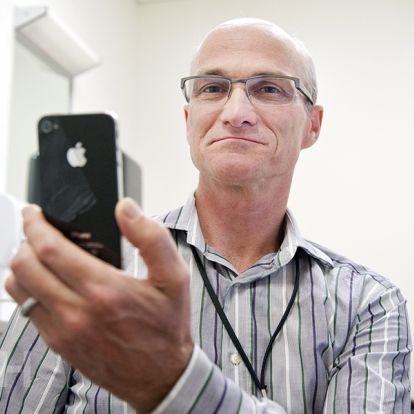
A joint research team at the Kingston General Hospital Research Institute and the Ottawa Hospital Research Institute have been awarded $9.8 million from the Canadian Institutes of Health Research to continue their groundbreaking work into maternal and child health.
Dr. Graeme Smith, clinician scientist at KGHRI and Head of Obstetrics and Gynecology and Professor, Queen’s University, is a co-applicant with lead researchers Dr. Shi-Wu Wen and Dr. Mark Walker, on the seven-year Foundation Grant.
“This award reflects the importance of this innovative, patient-oriented research and its benefits to mothers and their babies,” says Dr. Roger Deeley, Vice President of Health Sciences Research at KGH, and President of the KGH Research Institute. “Thanks to the support from CIHR, these researchers can continue to contribute to new knowledge and best practices in this crucial field.”
The funding will be used to study four areas of maternal health. One aspect will look at the effect of high-dose folic acid supplements in pregnancy on subsequent maternal and child health. This project follows up on a CIHR clinical trial that the group is just completing on the effects of folic acid on women at risk of developing pre-eclampsia, a high blood pressure condition that can be fatal to mothers and babies.
A second study aims to show evidence of the best timing and mode of delivery for women with obesity. Bigger babies are associated with obesity, and as such there is a higher chance of being delivered by caesarean section. This study will look at whether earlier delivery, before babies reach full-term weight, improves rates of vaginal births. A third, broad-based study of the impact of pregnancy and birth on subsequent maternal health (eg. cardiovascular disease), conducted in China as part of the group’s CIHR/China preconception cohort study, will look for evidence of the potential harm of non-medically necessary caesearean delivery.
The fourth project aims to reduce unnecessary caesarean deliveries in Ontario hospitals. It builds on previous work through Ontario’s Better Outcomes Registry & Network (BORN), in which hospitals tracked and reported metrics around pregnancy and birth. That data resulted in hospitals reducing the number of elective C-sections before 39 weeks, lowering the likelihood of smaller babies and longer hospital stays. This study will continue to look at that metric while tracking the numbers of women with previous C-sections who opt for this delivery method for subsequent births.
“Studies such as these help us to create new knowledge that leads to better health for mothers and children, both now and in the future,” says Dr. Smith, whose research focuses on pregnancy and birth in women as a “stress test” for predicting and preventing future health issues. “They also allow us to implement best practices and introduce change at the provincial level.”
Dr. Smith is the founder of The MotHERS Program (Mothers Health Education, Research and Screening) and website (www.themothersprogram.ca) to improve maternal health and outcomes.
To learn more about the studies, please contact @email.
Gallery


Dr. Graeme Smith in his clinic at KGH using one of his apps.



